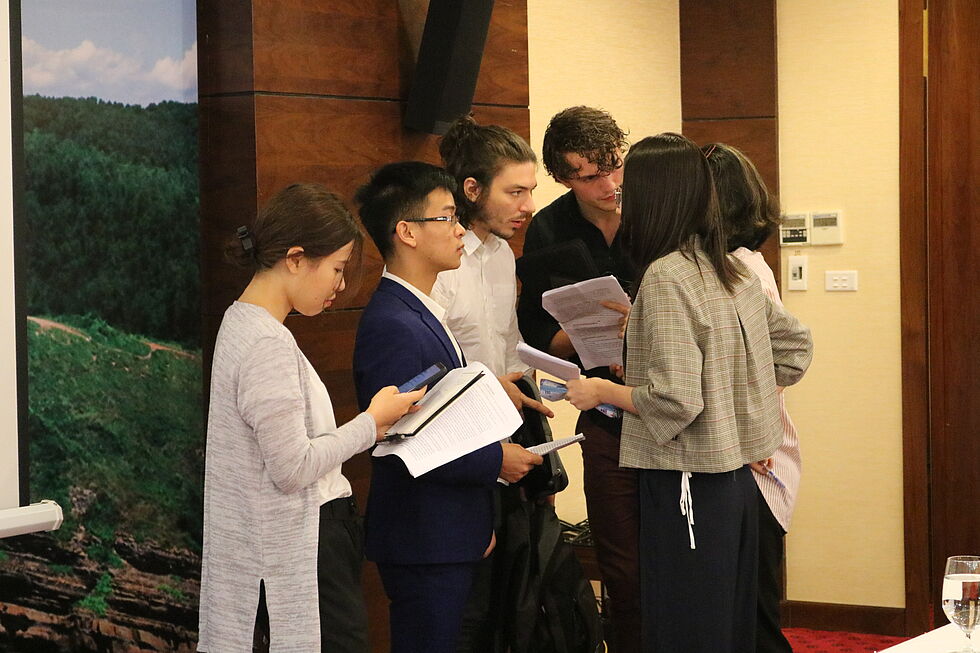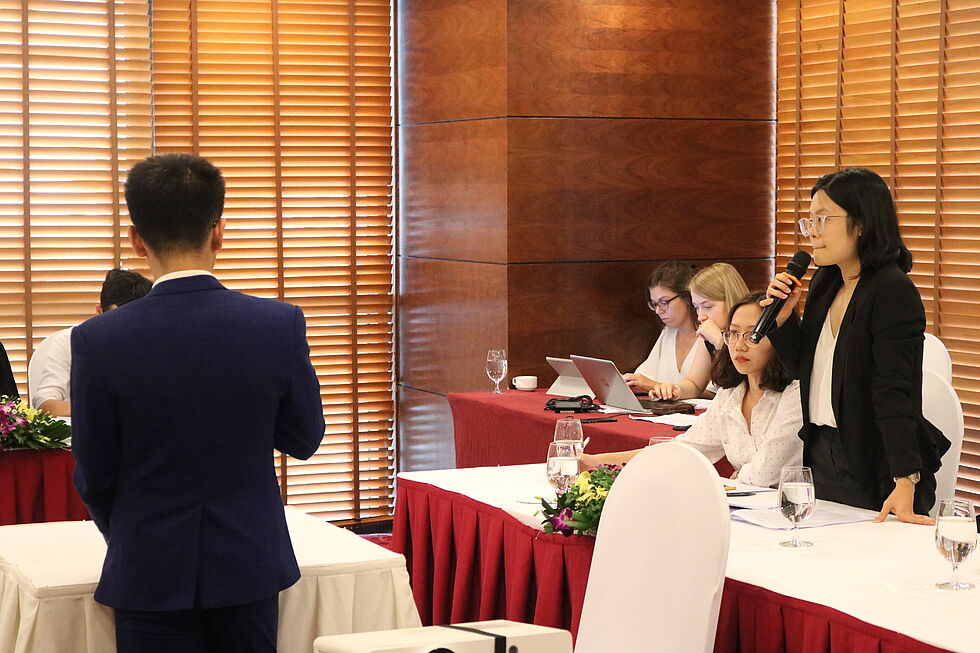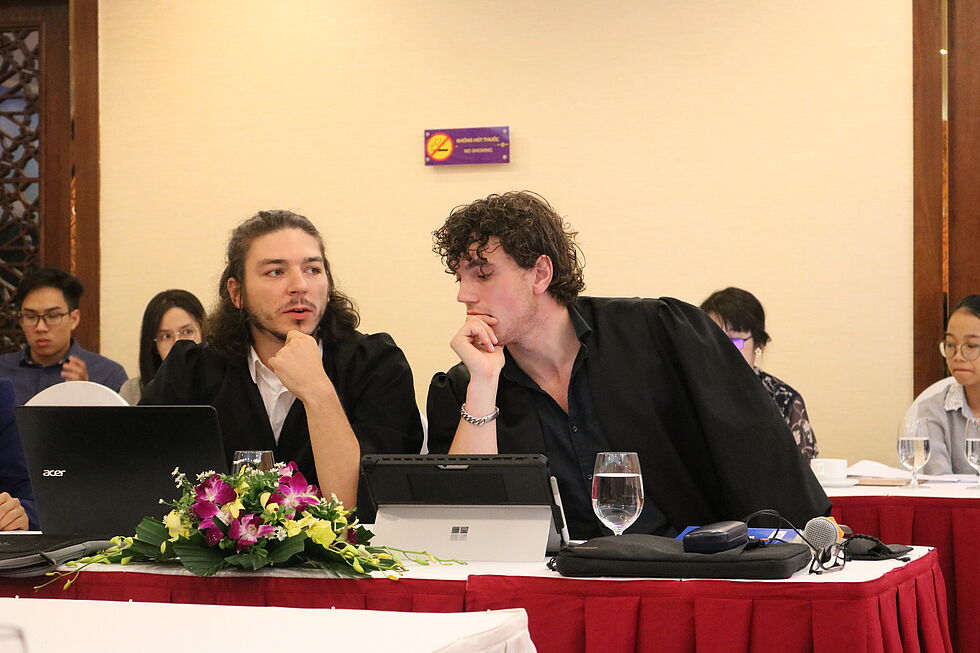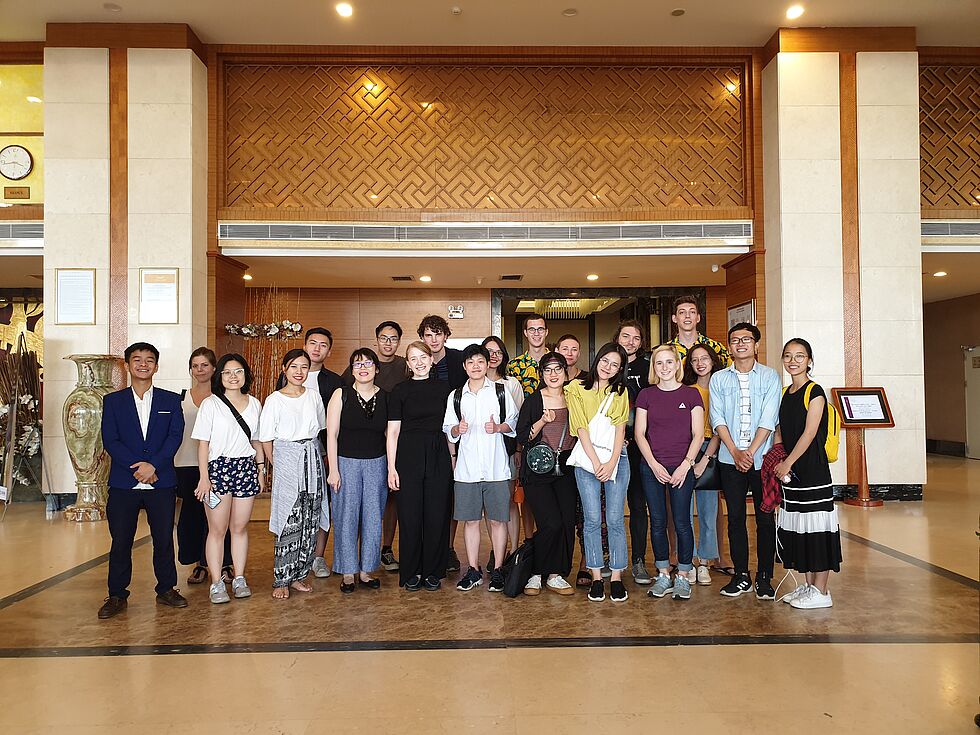Victim Protection in Criminal Proceedings – A difficult balance
Launched three years ago by Friedrich-Ebert-Stiftung (FES) in cooperation with the School of Law at Viet Nam National University (VNU) and University of Passau (UP), the annual German-Vietnamese Summer School took place from Sep. 16 – Sep 21, 2019 in Ha Noi and Ha Long. Lecturers, practitioners and students from both countries came together in order to enhance the international exchange regarding ideas on victim’s protection. Eventually, participants not only conducted a vivid discussion on how to overcome certain common obstacles, but also enhanced their personal skills regarding intercultural exchange.
Concentrated on the topic of sexual crimes victims in criminal proceedings, this year’s Summer School’s examined protection possibilities from a Vietnamese, German and international point of view. Hence, several experts employed in criminal law related areas gave lectures on the rights, protection and assurance of sexual crimes victims.
Furthermore, the Peace House initiative in Ha Noi for women and (their) children got introduced. Peace House, being associated with the Center for Women and Development Viet Nam, provides a shelter to recover from domestic violence and ensures comprehensive services such as legal aid, health care, vocational trainings and job support. Accordingly, Bui Thu Hien, working for UNDP Viet Nam, presented the UN’s perspective on national issues concerning women and gender. Regarding UNPD’s engagement in Viet Nam’s rural, mountainous areas, she showed how access to justice for everyone is not only strengthening the awareness of marginalized groups concerning their rights, but rather enforcing general trust in the national criminal justice system.
Debating whether it might be a violation of the presumption of innocence by already referring to a person as ‘the victim’ in trial, students eventually got intrigued by debating a major problem of a strong victims’ position: Every additional right given to them might, at once, weaken the legal position of the defendant. Thus, it must be a main objective of the judicial system to fairly balance the often-contradictory interests of victim and defendant.
Taking up the topic of effective victim’s protection, students subsequently discussed the different measures afforded to victims by Vietnamese and German criminal procedure law, which enable them for instance to participate in the main hearing. While many rights guaranteed in both countries resemble one another, Vietnamese speakers noticed their major problem in their system: Provisions often lack a clear obligation of authorities to carry out the guaranteed action such as giving access to case files. By that, the actual position of a victim often falls short of its written legal position. Consequently, victims in Viet Nam are facing two main issues: They are neither recognized as a party in criminal proceedings nor given a right to compensation.
Before changing to Ha Long, Hai Duong prison opened its gates to welcome their national and international guests with a tour across the prison site. With the guidance of administration staff, the participants got the unique chance to visit Vietnamese prisons facilities, like the dormitories or library. Thereby, participants of the Summer School had the possibility to catch an impactful glimpse of prisoners’ everyday life in Hai Duong. Encouraged by the administration staff to ask questions, participants have been patiently provided with firsthand information on the practical implementation of legal provisions in Viet Nam. For instance, the participants gained an insight to a prison’s code of conduct or how good behaviour can lead to additional visiting time or, at best, even to an amnesty.
Eager to finally apply their newly gained knowledge in the course of a Moot Court, participants simulated trials regarding domestic violence under German as well as Vietnamese criminal procedure law. Apparently, even slight differences in the provisions might change the outcome of a trial noticeably. However, it must not necessarily be concluded that one of the results is unjust.
Besides enjoying the intercultural exchange and gaining practical experience, students also learned another important thing: There is never just one solution to a problem but to acquaint oneself with a completely different approach can occasionally be quite inspirational. As Prof. Dr. Esser (University of Passau) conclusory pointed out, “what has turned out during the Summer School is that we have two countries facing almost the same problems. [...] As we have many differences in law, we hope that we can learn and benefit from each other [...] - hopefully in further Summer Schools.”







